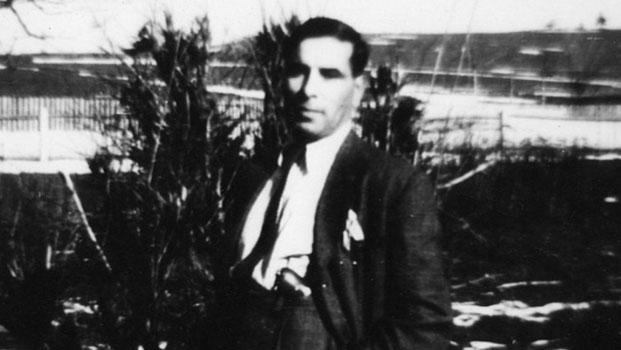Romani heroes: The "Black" Partisan, Josef Serinek

Josef Serinek (1900-1974, sometimes also spelled Serynek), a Czech Roma who went by the code name of Černý (“Black”), was a soldier during the First World War, a prisoner of the Lety concentration camp during the Second World War, and later a Partisan commander. After the end of the Second World War he ran a pub called “U černého partyzána” (“At the Black Partisan’s Place”) in the Czech town of Svitavy.
On 3 August 1942, Josef, his wife and his five children were arrested and sent by the Czech Protectorate gendarmerie to the camp at Lety by Písek. All of his children and his wife eventually died either at Lety or later in Auschwitz-Birkenau.
Josef fled the Lety camp together with his brother Karel on 15 September 1942 after the rest of his family had either died or been sent to Birkenau. He did not like killing and war and was still weighed down by his traumatic experiences from the trench warfare of World War One.
He wanted to avenge his family, though, so he and his brother burgled several hunting lodges and armed themselves with hunting weapons. In the spring of 1943, his brother Karel was greatly outnumbered and died fighting the gendarmerie who were being led by the Nazis to comb the forests of South Bohemia looking for Partisans.
Josef fled and moved to Vrchovina, where he managed to establish contact with the R3 resistance group and began to build up a Partisan division, primarily comprised of Soviet prisoners of war who had managed to escape. That division later adopted the fighting name “Chapayev” (Čapajev), but it was much better known under the name of “Černý” (Black), referring to its commander’s skin color.
One of that division’s most famous acts of hostility was a punitive expedition against the gendarmerie in Přibyslav, who had shot dead General Luža, one of the commanders of R3, on 2 October 1944. Josef reportedly never took prisoners and always remembered the atrocities and crimes committed against the defenseless prisoners of the Lety camp.
At the end of the war, when the fighting was done, Serinek is said to have displayed unusual compassion for the defeated enemy. More than once he prevented executions of defeated Wehrmacht soliders or the lynching of German civilians.
Josef Serinek dictated his memoirs to an historian by the name of Tesař during the 1960s. Currently they are ready for publication.
While his own children did not survive the war, the children, grandchildren and great-grandchildren of his brother Karel live in Příbram and its environs today. In 2014 I brought the granddaughter and great-granddaughter of Karel Serinek to the pig farm at Lety, where some of their family members died.
It was the first time they had visited the place. Together we threw flowers over the fence of the farm onto the piles of pig manure there.